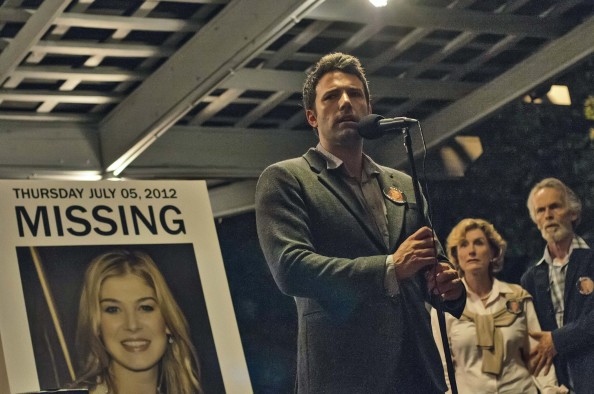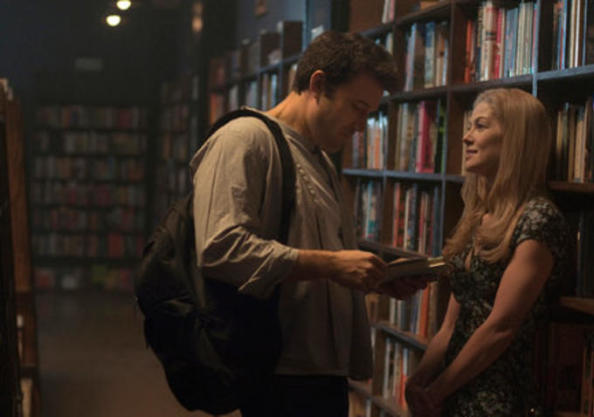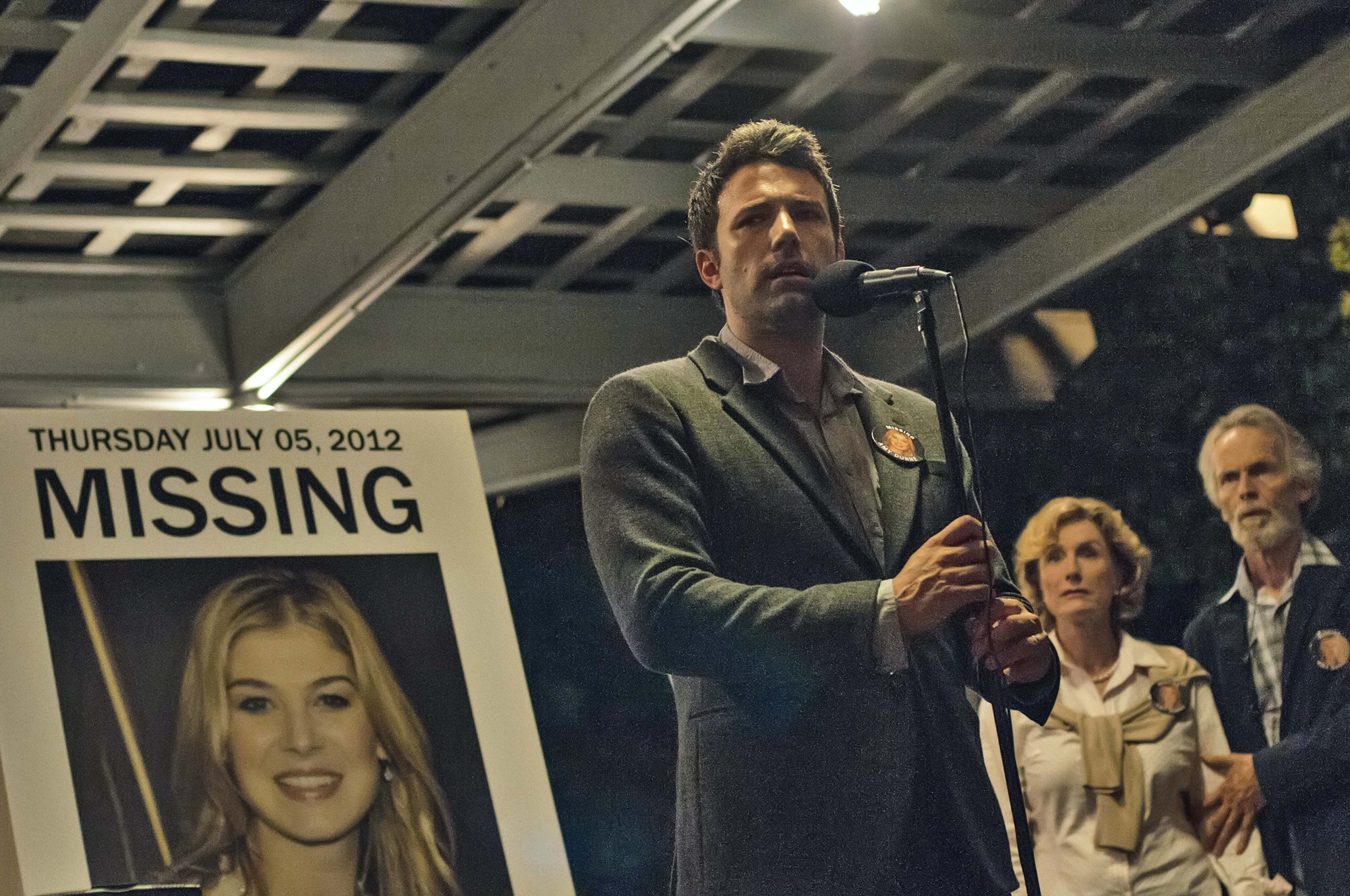
Directed by: David Fincher
Starring: Ben Affleck, Rosamund Pike, Neil Patrick Harris
Written by: Gillian Flynn (screenplay), Gillian Flynn (novel)
GONE GIRL – directed by David Fincher and based upon the global bestseller by Gillian Flynn – unearths the secrets at the heart of a modern marriage. On the occasion of his fifth wedding anniversary, Nick Dunne (Ben Affleck) reports that his beautiful wife, Amy (Rosamund Pike), has gone missing. Under pressure from the police and a growing media frenzy, Nick’s portrait of a blissful union begins to crumble. Soon his lies, deceits and strange behavior have everyone asking the same dark question: Did Nick Dunne kill his wife? (c) Fox
Gone Girl is an implausible, over-the-top thriller on the surface that will be one of the most debated movies of the year from casual moviegoers to serious cinephiles. Embrace the zeitgeist factor and stay for the story. David Fincher’s reveals the horrific truth of devout relationships with gleeful confidence with his signature dark style (both thematically grim and dimly lit). Commitment is portrayed as bondage. The brisk editing and focused cinematography are a cinematic strength from a stylistic standpoint not to mention the haunting score from Trent Reznor and Atticus Ross. Mr. Fincher elevates Gillian Flynn’s complicated, toxic tale of a failed marriage and an emotionally disconnected suburban husband accused of murdering his wife to another level most directors couldn’t accomplish. The foundations of life unravel and audiences ease drop like a gossipy neighbor. There’s even that character in this story, too.
The rock solid strength of Gone Girl is the stellar cast of women. What a revelation. With the unhinged, yet in-control fury of Rosamund Pike as Amy Dunne we never can trust her. She always seems to be a few steps ahead of the audience who is desperately figuring her out. I didn’t know who Rosemary Pike was before Gone Girl, but after this movie, she is unforgettable. Kim Dixons as Detective Rhonda was what insecure men would describe feisty, yet confident and determined individual eager to solve the disappearance. Newcomer Carrie Coon as Nick’s twin Margo was my favorite character and performance. Like all quality supporting performance, Ms. Coon commands the screen in an understated way and you want to know what she is up to when she isn’t seen. If anything, Gone Girl accomplishes the female ensemble of the year when most movies focus on males. The biggest crime would be neglecting these strong female performances during awards season especially during a lackluster crop of contenders.

The men in Gone Girl weren’t as great as the women, but still solid. I normally don’t care for Ben Affleck but this was one of his best performances. For male viewers, he is the sympathetic character of the movie (and for women the pathetic). He is carrying the circumstances on his tired shoulders and burdensome face. Those claiming Mr. Affleck “phoned in his performance” is committing shallow and lazy film criticism. He puts in a lot to his role. In my opinion, Neil Patrick Harris wasn’t interesting or challenging as he should’ve been. Dare I say miscast? (Though I loathe that term.) He fails to live up to the potential of his awkward and creepy introductory scene. Contrast this with Tyler Perry who was hilarious as the defense attorney providing comic relief to this uncomfortable situation. This is only surprising to people who hate him. He is a savvy and talented entertainer so it made sense he succeeds in this role.
With a convoluted plot and terrific performances on the surface, Gone Girl is much more than the melodramatic marriage and murder mystery. It conveys multi-layered issues about bickering couples in an unhealthy marriage as well as an obsessive and sensational press. Sociopaths can play loved ones and society like a fiddle while cable news and the Drudge Report manipulate the masses. Watching something like Gone Girl makes me want to be very cautious falling for any “media narratives” ever again. In a movie era of mass produced, numbing entertainment, it is daring and subversive that a major studio releases something like Gone Girl (and that the Godfather of sensational journalism Rupert Murdoch and 20th Century Fox is distributing it of all studios). Regardless, Gone Girl is an engaging romp, but it speaks to the current condition of our medicated, relational brokenness in the context of a tawdry thriller.
Gone Girl – 8.5 out of 10







I love the themes in this movie! I talked about it in my blog: http://lefilmreviews.blogspot.com/2015/01/gone-girl-film-review.html
I especially like the idea of partner manipulation that is brought up in the movie…very interesting stuff.